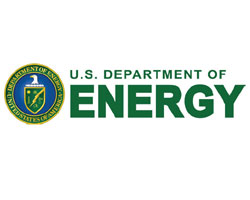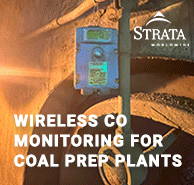
 










|
Signature Sponsor


October 6, 2024 - As part of the Biden-Harris Administration’s Investing in America agenda, the U.S. Department of Energy’s (DOE) Office of Clean Energy Demonstrations (OCED) has opened applications for up to $400 million to spur innovative, community-focused, clean energy solutions for rural and remote communities across the United States. This funding—made possible by President Biden’s Bipartisan Infrastructure Law—will help rural and remote communities demonstrate replicable projects, ultimately encouraging widespread adoption and helping to lower energy costs, support local economic development, and enhance energy resiliency. Today’s announcement underscores President Biden’s and Vice President Harris’ deep commitment to building an inclusive and equitable clean energy future that creates safer, more resilient communities, strengthens energy security, and delivers new economic opportunities in every pocket of the nation. The funding announced today is part of the Energy Improvements in Rural or Remote Areas (ERA) Program, which aims to fund community-driven projects that demonstrate clean energy systems, deliver measurable and sustained benefits to people who live in areas with fewer than 10,000 people, and build clean energy knowledge, capacity, and self-reliance throughout rural America. Due to low population density and isolation from larger electric systems, rural and remote communities often face higher energy costs, poor electrical reliability, and a lack of new clean energy investment. At the same time, rural America has vast unused potential for clean energy generation. The funding opportunity provides support for rural and remote communities to build clean energy projects that provide benefits to their communities—ranging from cleaner, more resilient, more reliable, and more affordable local energy sources for rural and remote communities, to local energy independence, tax revenue, economic development, local jobs, and a reduced environmental and health burden. It will also help ensure that no community is left behind as America builds its clean energy future—a top priority of the Biden-Harris Administration. This new funding opportunity is informed by feedback and data collected by OCED from applicants, rural communities, and other stakeholders, as well as from previous ERA Program funding rounds, including more than $450 million for 36 projects and 67 prize winners. The funding opportunity will include federal awards from $2 million to $50 million to help communities lead in developing tailored clean energy projects best suited for their unique needs. Eligible projects must address at least one of the following: improving overall cost-effectiveness of energy generation, transmission, or distribution systems; siting or upgrading transmission and distribution lines; reducing greenhouse gas emissions from energy generation in rural or remote areas; providing or modernizing electric generation facilities; developing microgrids; or increasing energy efficiency. OCED plans to fund anywhere from 20-50 projects with a 5–50% minimum non-federal cost share per project. Eligible applicants include tribes and tribal organizations, state and local governmental entities, non-profit and for-profit entities, rural electric cooperatives, farming associations and cooperatives, labor unions, institutions of higher education, and both incorporated and unincorporated consortia. OCED expects that this funding opportunity will enable communities to demonstrate practical options that will catalyze more rural and remote areas to integrate and benefit from clean energy. Read the Notice of Funding Opportunity here. Concept papers are due by February 27, 2025, and full applications are due by August 28, 2025. Applicants may wish to register for the informational webinar, on October 8, 2024, on the ERA Program’s local engagement page. Learn more about previous projects selected as part of the ERA program, including the ERA Funding Opportunity Announcement for cooperative agreements, the ERA Funding Opportunity Announcement for Grants, and the Energizing Rural Communities Prize. |
 











|